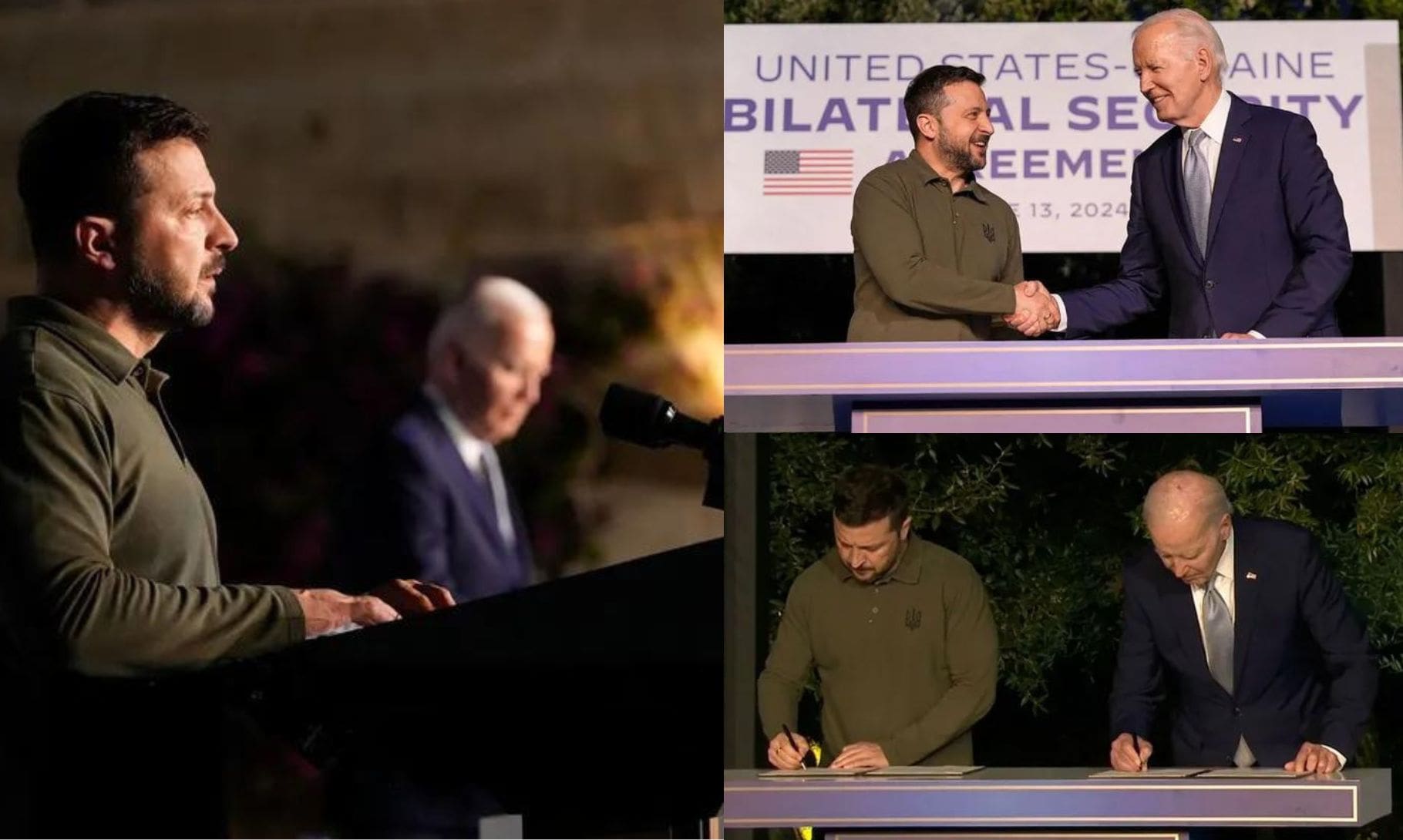Ukraine, excluded from NATO membership for now, is building a network of 20 bilateral security agreements to strengthen defenses against Russia. These agreements provide military aid, training, and weapons from allies like the US, but lack NATO’s Article 5 defense guarantee. While supportive, they aren’t legally binding treaties, making Ukraine vulnerable to changes in partner countries’ leadership.
The US and others have pledged robust support through these agreements, emphasizing long-term defense assistance. However, they don’t replace Ukraine’s desire for NATO membership and are seen as steps toward it, focusing on military reforms and cooperation.
Critics argue these agreements may not deter Russian aggression effectively without Article 5’s binding commitment. Securing stronger commitments, like full NATO membership, faces political challenges and changing priorities in governments.
Financially, Ukraine expects significant aid through these agreements, aiming for $60 billion annually over four years. Yet, experts note Article 5 coverage would offer more secure and cost-effective defense. Despite limitations, Ukrainian officials believe these agreements consolidate international support and enhance defense capabilities.
Ukraine’s bilateral security agreements are crucial steps to boost defense and gather global backing against Russian threats. While not a substitute for NATO’s security guarantee, they show a practical approach amid uncertain NATO membership prospects. The challenge remains balancing politics with strategic needs amid evolving international relations.







